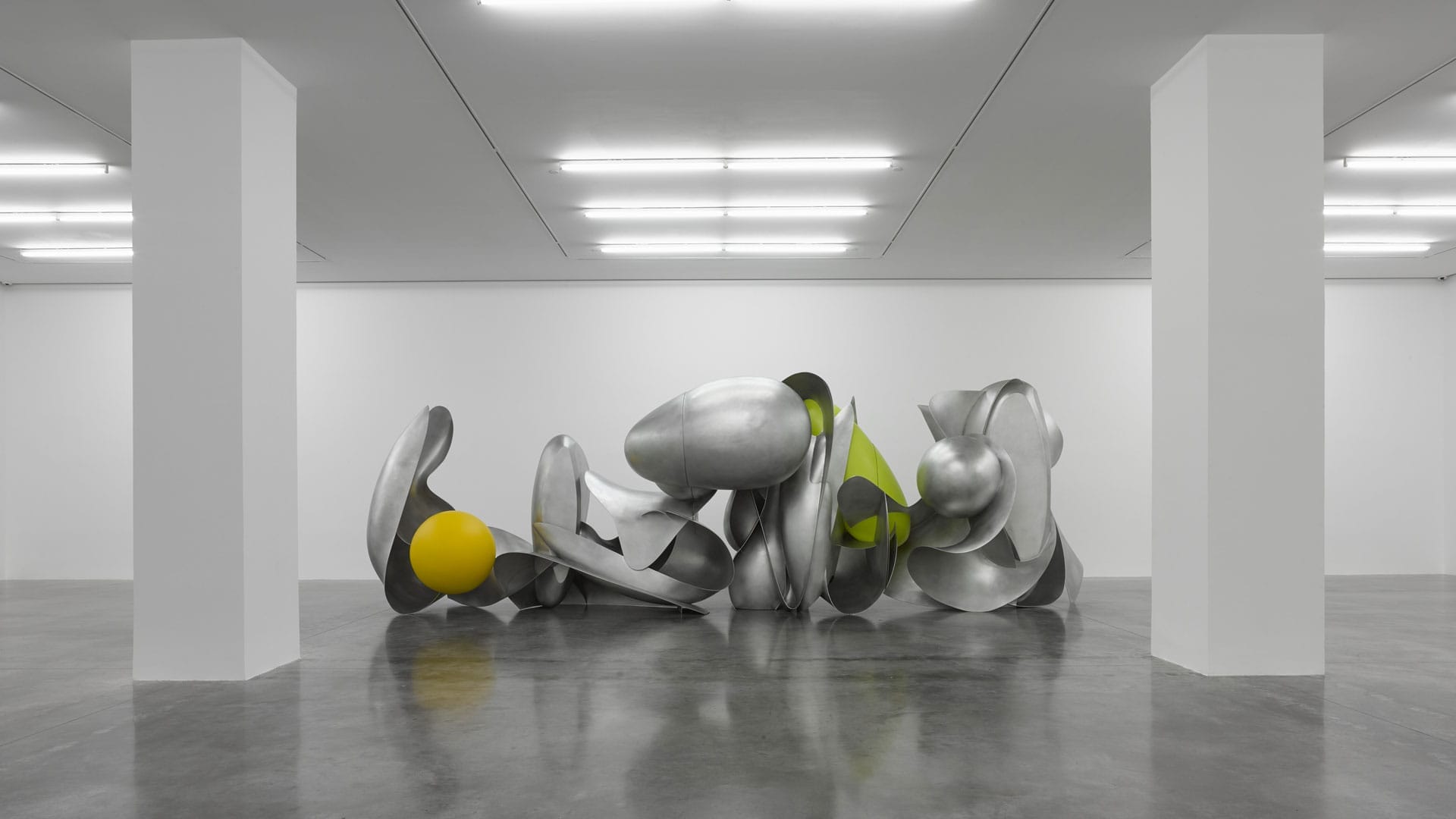
David Schutter, Neighbors, at Magazzino, Rome
David Schutter’s exhibition at Magazzino, Rome, invites viewers on a layered and introspective journey, where painting becomes a medium for interrogating memory, history, and perception. The works, inspired by John Constable’s The Admiral’s House in Hampstead (The Grove), immediately signal a critical distance from the British artist’s Romantic vision. Schutter’s paintings do not aim to faithfully recreate Constable’s landscapes; instead, they emerge as dense, opaque surfaces that seem to withhold more than they reveal. Created using historical pigments and materials similar to those Constable might have employed, Schutter’s canvases engage with the past through a process of deconstruction. His meticulous technique produces stratified, tactile surfaces where hints of light and shadow emerge fleetingly, as though Constable’s idyllic world has been fragmented and returned to us in an ambiguous, almost spectral form.

The exhibition’s layout plays a central role in shaping the experience. The paintings, small in scale but heavy with presence, are sparsely arranged on pristine white walls in a minimalist space that amplifies the sense of silence and introspection. Each work is afforded significant distance, creating an atmosphere of contemplative isolation and inviting visitors to focus on every painting individually. This deliberate spacing transforms the voids between the works into an essential component of the display, a silent counterpoint that enhances the meditative nature of the experience. The lighting is stark and precise, highlighting the materiality of the canvases, the textures of the pigments and the subtle tonal variations in their dark, almost impenetrable surfaces. This presentation avoids imposing any narrative, instead urging the viewer to bring their own interpretations to the fragmented echoes of Constable’s world.
What resonates most powerfully in the exhibition is its critical reflection on the legacy of Romantic landscapes and the histories they obscure. Where Constable celebrated nature as a harmonious space of personal reverie, Schutter draws attention to the darker undercurrents of such imagery, exposing their links to colonial and imperial histories. The Admiral’s House, which Constable painted as a tranquil retreat, was in fact the home of Admiral Matthew Barton, whose career was tied to the British Empire’s violent circuits of trade and conquest. Schutter begins with this historical tension, creating works that reject any form of idealization. His paintings are not mere copies or reinterpretations but performative acts that interrogate both the process of painting and the selective memory embedded in Constable’s original works.

As viewers leave the exhibition, they carry with them a sense of having encountered more than just paintings. Schutter’s works, with their visual and conceptual opacity, linger in the mind, continuing to pose questions long after the gallery is behind them. This body of work challenges us not just to see, but to think critically about how history is represented and reframed. Schutter’s practice is a meticulous and intellectual undertaking, an invitation to dismantle, analyze, and reconsider the images of the past in light of the complexities of the present. Through this exhibition, he demonstrates how painting can serve as a rigorous form of inquiry, one that refuses to accept the narratives of history at face value and instead seeks to uncover what lies beneath.

Schutter, was born in Pennsylvania in 1974, is known today for his mid-scale, quasi-monochrome gray paintings—meticulous marvels of surface texture and illusory nuance that, when seen up close, reveal the riches and range of this seemingly most neutral of colors. Indeed, the crux of Schutter’s project is located in the patience and probing focus of his gaze; so too the experience of viewing his work requires lengthy looking. David Schutter’s practice is a form of phenomenological study that discusses the distances and problems encountered when making a painting. His works are as much performative re-enactments of specific canonical sources as they are paintings and drawings, and as such form a painter’s repertory of extended rehearsals. Schutter locates his practice within the traditions of philosophical inquiry by beginning with the surfaces of things. His questions elicit responses to how we re-stratify our knowledge of the past while developing representations of the present.

fakewhale
Founded in 2021, Fakewhale advocates the digital art market's evolution. Viewing NFT technology as a container for art, and leveraging the expansive scope of digital culture, Fakewhale strives to shape a new ecosystem in which art and technology become the starting point, rather than the final destination.
You may also like
Sander Wassink, between pixel and particle, at CONTRAST, Tokyo
“Between pixel and particle” by Sander Wassink, curated by CONTRAST, at CONTRAST, Tokyo,
Ingeborg Tysse, WILD WATCH at Norwegian Sculptors Society, Oslo
WILD WATCH by Ingeborg Tysse, curated by Tatiana Lozano, at Norwegian Sculptors Society, Oslo, 24/04
12 Must-Visit Contemporary Art Galleries in London
London, renowned for its vibrant and dynamic art scene, is a treasure trove for contemporary art dev




